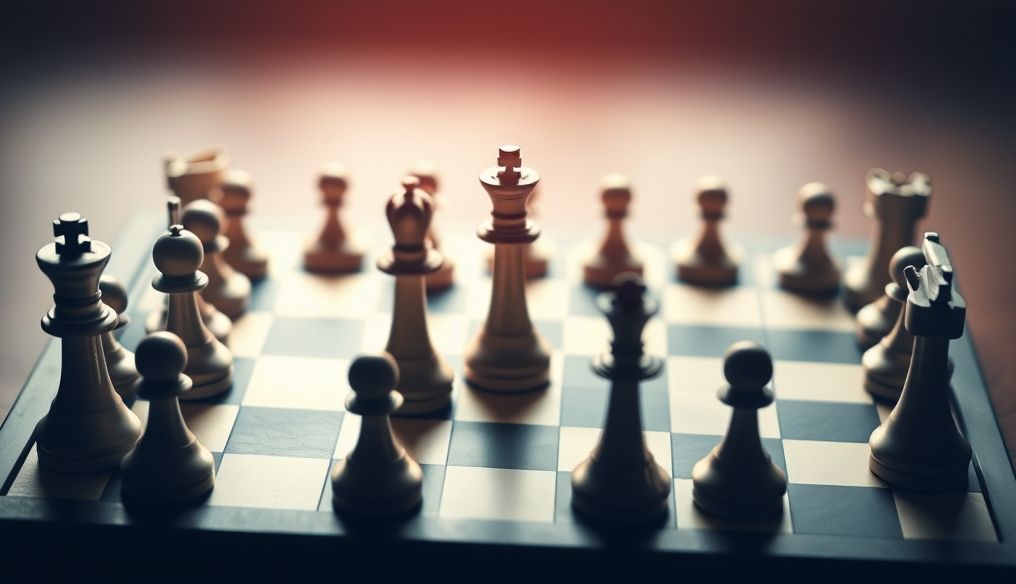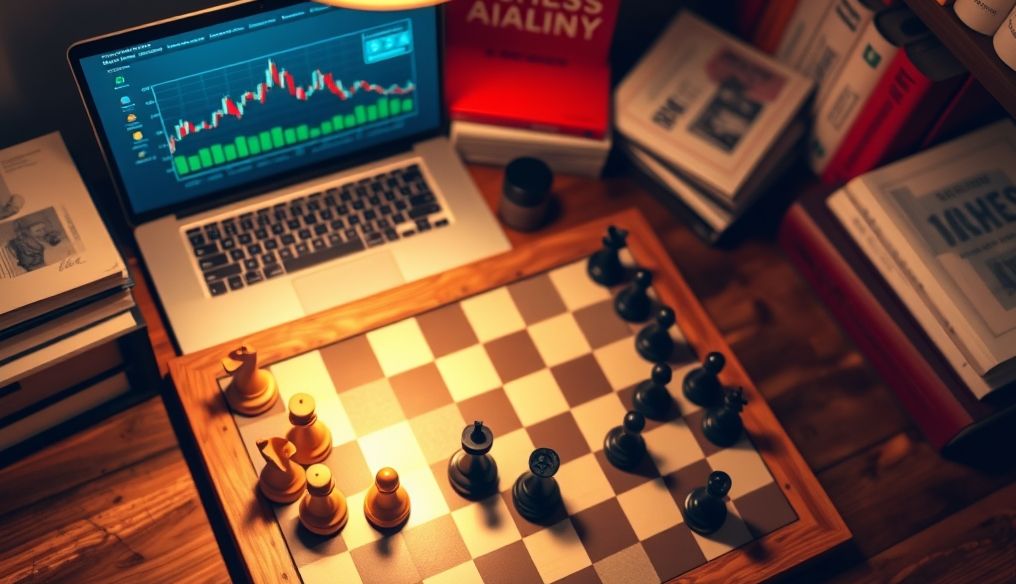How Does Chess Benefit Strategic Thinking and Improve Your Life?
Chess, a game that seems simple at first glance, holds within it a complex world of strategies and tactics. It's not just a way to pass the time; it's a powerful tool for developing strategic thinking and enhancing mental abilities. So, what exactly are the benefits of chess for strategic thinking? And how can this game improve your life in unexpected ways?
Chapter 1: Chess and Strategic Thinking - An Overview
Strategic thinking is the ability to plan for the future, analyze complex situations, and make decisions that lead to achieving goals. Chess, by its nature, stimulates this type of thinking through:
- Planning Ahead: The player must think several steps ahead, anticipate the opponent's moves, and plan to face any potential scenario.
- Analyzing Situations: Chess requires a careful analysis of the current situation on the board, evaluating the strengths and weaknesses of each player.
- Making Decisions: The player must make quick and thoughtful decisions in each move, taking into account the potential consequences.
In other words, chess is a miniature laboratory for strategic thinking, where one can practice these skills in a safe and controlled environment.
Chapter 2: Enhancing the Ability to Plan and Predict
One of the most important benefits of chess is enhancing the ability to plan and predict. In each game, the player must think about a series of moves, anticipate how the opponent will respond, and develop a long-term plan to achieve victory. This process helps to:
- Develop a Future Vision: By thinking several steps ahead, the player learns how to see the big picture and anticipate the potential outcomes of their decisions.
- Improve the Ability to Predict: By analyzing the opponent's moves, the player learns how to predict the behavior of others and how they respond to different situations.
- Reduce Impulsivity: By thinking ahead, the player learns how to avoid making impulsive decisions that may lead to negative outcomes.
These skills are applicable in many aspects of life, from financial planning to project management to negotiation at work.
Chapter 3: Improving the Ability to Think Critically
Chess requires a careful critical analysis of the current situation on the board. The player must assess the strengths and weaknesses of each player, identify available opportunities, and discover potential threats. This process helps to:
- Develop Problem-Solving Skills: By analyzing complex problems and breaking them down into smaller parts, the player learns how to find innovative and effective solutions.
- Improve Critical Thinking Ability: By evaluating information objectively, the player learns how to avoid biases and common errors in thinking.
- Enhance Self-Awareness: By analyzing their mistakes, the player learns how to identify their weaknesses and how to work on improving them.
These skills are essential for success in any field that requires informed decision-making, such as business, science, and law.
Chapter 4: Enhancing the Ability to Make Decisions Under Pressure
Chess often requires making quick and thoughtful decisions under pressure. Time is limited, the opponent is pressuring you, and the potential consequences are dire. This experience helps to:
- Develop Self-Confidence: By making difficult decisions and dealing with pressure, the player learns how to trust their abilities and how to deal with difficult situations.
- Improve Time Management: By prioritizing and making decisions quickly, the player learns how to manage their time effectively and how to complete tasks on time.
- Enhance the Ability to Focus: By focusing on the game and ignoring distractions, the player learns how to maintain focus and how to complete tasks efficiently.
These skills are essential for success in any field that requires quick and thoughtful decision-making, such as medicine, sports, and leadership.
Chapter 5: Chess and Personal Development
In addition to its benefits for strategic thinking, chess can contribute to personal development in general. It helps to:
- Improve Memory: Chess requires remembering many moves, patterns, and strategies, which helps to improve working memory and long-term memory.
- Increase Concentration: Chess requires intense concentration for long periods of time, which helps to improve the ability to focus and avoid distractions.
- Enhance Creativity: Chess requires finding innovative solutions to complex problems, which helps to enhance creativity and think outside the box.
- Develop Patience and Perseverance: Chess is a difficult game that requires a lot of patience and perseverance to achieve success, which helps to develop these important qualities.
Chapter 6: Chess in Education
Many schools and universities around the world recognize the benefits of chess for students and are incorporating it into the curriculum. Studies have shown that chess can help students to:
- Improve Academic Performance: Studies have shown that students who play chess achieve better results in math, science, and reading.
- Develop Problem-Solving Skills: Chess helps students develop problem-solving skills and critical thinking, which are essential skills for success in life.
- Increase Self-Confidence: Chess helps students build self-confidence and a sense of accomplishment, which leads to improved performance in school and beyond.
Chapter 7: How to Start Playing Chess?
If you are interested in experiencing the benefits of chess for strategic thinking, here are some tips to get started:
- Learn the Basic Rules: Start by learning how to move the pieces and the basic rules of the game.
- Play Regularly: The more you play, the better your skills will become.
- Study Chess Strategies: Read books, articles, and watch educational videos to learn different chess strategies.
- Play Against Better Players: Play against better players to learn from them and improve your skills.
- Enjoy the Game: Most importantly, enjoy the game! Chess should be fun and challenging.
Chapter 8: Resources for Learning Chess
There are many resources available for learning chess, including:
- Websites: Chess.com, Lichess.org
- Apps: Chess.com, Lichess, Chess King
- Books: "My 60 Memorable Games" by Bobby Fischer, "Logical Chess: Move By Move" by Irving Chernev
- Educational Videos: YouTube channels like GothamChess, ChessNetwork
In conclusion, chess is a powerful tool for developing strategic thinking and enhancing mental abilities. Whether you are looking for a way to improve your planning, analysis, and decision-making skills, or you are looking for a fun and challenging activity, chess is an excellent choice. Start today and enjoy the many benefits that chess can offer to your life!




